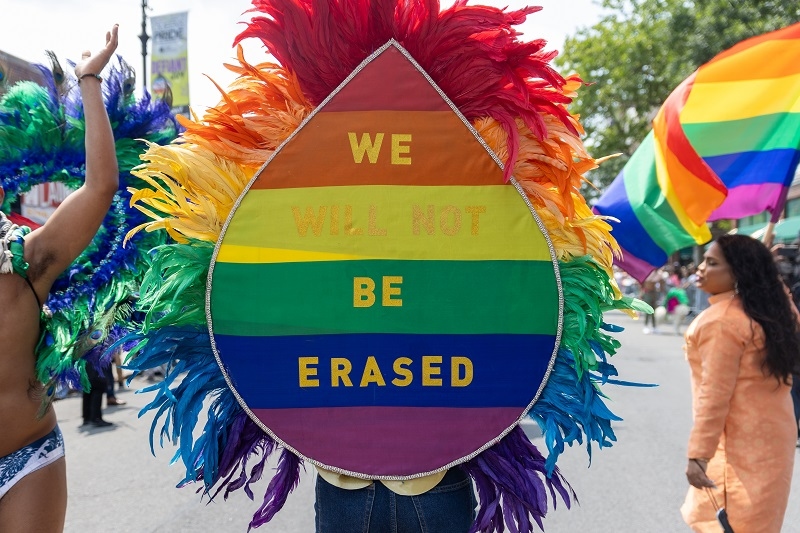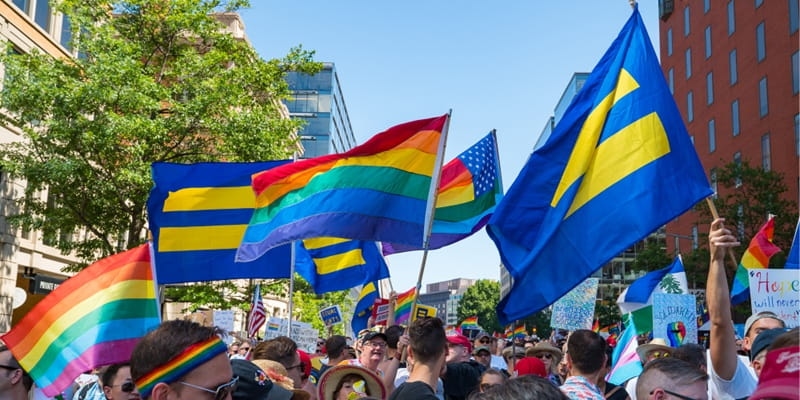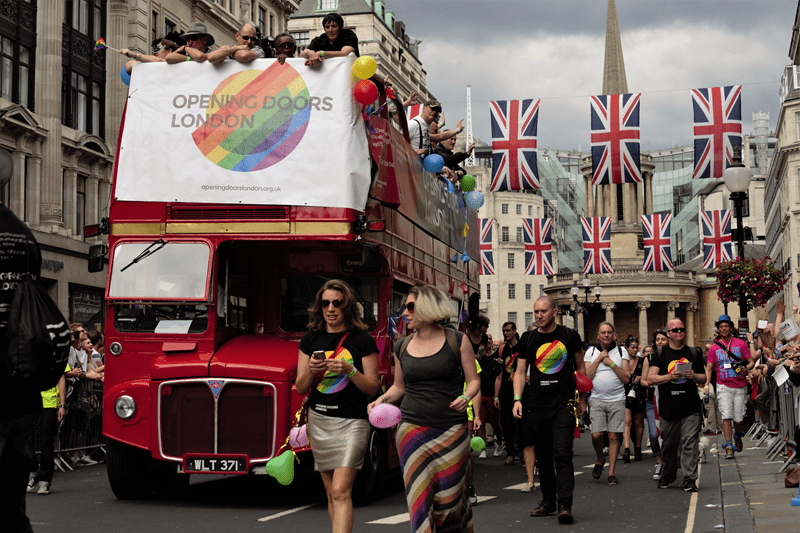Complete Guide to LGBTQ+ Employment Discrimination Lawyers

LGBTQ+ individuals continue to face significant challenges in the workplace, even as legal protections have improved over recent years. Discrimination against LGBTQ+ employees remains a prevalent issue, impacting job security, career advancement, and overall workplace well-being. Many LGBTQ+ workers encounter various forms of bias, from unequal pay and exclusionary hiring practices to outright harassment and wrongful termination. The impact of such discrimination is profound, often leading to emotional distress, economic insecurity, and a hostile work environment that undermines both individual well-being and organizational cohesion.
Types of discrimination that LGBTQ+ employees face are wide-ranging. Unequal pay, where LGBTQ+ individuals receive less compensation than their non-LGBTQ+ counterparts for the same work, is a common issue. Similarly, biased hiring practices often result in qualified LGBTQ+ candidates being overlooked for positions or promotions. Harassment, whether in the form of derogatory comments, exclusion from workplace activities, or more severe abuses, further exacerbates the hostile atmosphere. Wrongful termination, where an employee is dismissed due to their sexual orientation or gender identity, remains a critical concern despite increased awareness and advocacy.
Despite the progress made in securing legal protections for LGBTQ+ employees, challenges persist. Many workers still face discrimination and are often unaware of their rights or reluctant to come forward due to fear of retaliation. This underlines the ongoing need for the support of an experienced LGBTQ discrimination lawyer who can help navigate these complex legal landscapes.
Legal Protections for LGBTQ+ Workers

In the fight against workplace discrimination, several federal, state, and local laws provide protection for LGBTQ+ employees. At the federal level, Title VII of the Civil Rights Act of 1964 prohibits employment discrimination based on race, color, religion, sex, and national origin. In a landmark decision in 2020, the Supreme Court extended these protections to cover sexual orientation and gender identity under the case Bostock v. Clayton County. This ruling affirms that discrimination against LGBTQ+ individuals is illegal under federal law, providing a significant layer of protection.
However, Title VII does not apply to all employers, particularly those with fewer than 15 employees, and there are exceptions for certain religious organizations. Many states and localities have enacted their own anti-discrimination laws that often provide broader protections. For instance, some states extend protection to smaller employers or offer additional legal remedies not covered by federal law. These state and local laws play a crucial role in ensuring that LGBTQ+ employees have comprehensive protection against discrimination, regardless of the size or nature of their employer. For those considering relocation, exploring the top LGBTQ-friendly countries can offer additional protections and a more inclusive environment.
LGBTQ+ employees have the right to a workplace free from discrimination and harassment. This includes protection against wrongful termination, unequal pay, biased hiring or promotion practices, and harassment that creates a hostile work environment. An LGBTQ discrimination attorney can provide valuable guidance on these rights, helping employees understand their options and the best course of action in situations where discrimination occurs.
Real-World Examples of Discrimination
Discrimination against LGBTQ+ employees can manifest in many forms, both overt and subtle. Overt examples include the refusal of promotions or career advancement opportunities, pay inequities, and denial of benefits such as healthcare coverage for same-sex partners. These discriminatory actions not only affect an employee's financial stability but also send a message of exclusion and devaluation.
Subtle forms of discrimination can be just as damaging, even if they are less visible. Microaggressions, such as offhand comments or jokes about someone’s sexual orientation or gender identity, contribute to an unwelcoming environment. Exclusion from team activities, biased performance reviews, or being left out of important meetings can undermine an LGBTQ+ employee’s sense of belonging and professional growth. These behaviors create a hostile work environment that can be challenging to prove without proper documentation and support.
Understanding how discrimination manifests in both overt and covert ways is essential for addressing and preventing it. Employees who experience discrimination should seek the assistance of an LGBTQ discrimination lawyer to ensure that their rights are protected and that they receive fair treatment in the workplace. For those undergoing Transmasculine Hormone Therapy, it's crucial to understand your rights and address any workplace discrimination proactively.
FAQs About LGBTQ+ Employment Discrimination
1. How Can I Prove Discrimination Based on Sexuality or Gender?
Proving discrimination based on sexuality or gender involves gathering solid evidence that shows you were treated unfairly compared to other employees. Start by keeping detailed records of incidents, including dates, times, and descriptions of what happened. Document any discriminatory comments, actions, or decisions made by supervisors or colleagues. Save relevant emails, texts, or documents that support your claims. Additionally, witness statements from colleagues who have observed discriminatory behavior can strengthen your case. It is crucial to maintain these records in a secure location and consult an LGBTQ discrimination attorney early on to understand the types of evidence needed and to develop a strategy for your case.
2. What Types of Compensation Are Available to Victims of Discrimination?
Victims of workplace discrimination are entitled to various forms of compensation aimed at restoring them to the position they would have been in if discrimination had not occurred. Compensation may include back pay for wages lost due to wrongful termination or missed promotions and front pay for future earnings if reinstatement is not possible. Courts may also award reinstatement to your former job or a comparable position. Additionally, you could be entitled to attorney fees and other litigation costs, as well as damages for emotional distress and mental suffering caused by discriminatory actions. An experienced LGBTQ discrimination lawyer can help you understand the compensation options available and determine the best approach for your case.
3. What Should I Do If I Experience Discrimination at Work?
If you face discrimination due to your LGBTQ+ status, it is crucial to take immediate and strategic action. Begin by documenting every incident in detail, noting dates, times, and descriptions of what occurred. Follow your employer’s procedure for reporting discrimination, which often involves notifying a supervisor or the human resources department. Make your report in writing to create a documented record of your efforts to address the issue. It is also wise to seek legal advice from an LGBTQ discrimination attorney who can provide guidance on your rights and the strength of your case. Be aware of deadlines for filing a claim, which vary depending on whether you are pursuing federal, state, or local legal avenues. Acting promptly can protect your rights and improve your chances of a successful outcome.
Also read: Importance of Gender-Affirming Care for Transgender and Non-binary Individuals
Final Thoughts
Understanding your rights as an LGBTQ+ employee and taking the right steps when you face discrimination are vital for protecting yourself and achieving justice. If you believe you have been discriminated against, consulting an experienced LGBTQ discrimination attorney can help you navigate the complexities of the legal system, build a strong case, and pursue the compensation you deserve.
This content was created by AI























